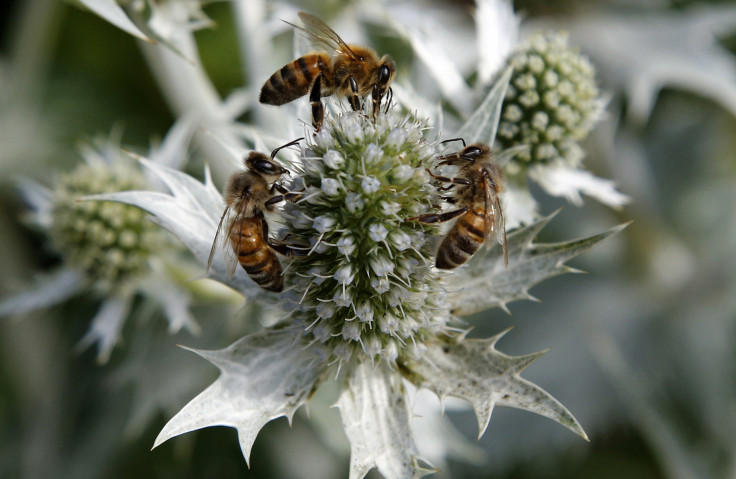Honeybees’ Death Rates In Europe Are Lower Than Expected, ‘Encouraging’ New Study Reveals

Over the past decade, scientists have painted the future of the world’s honeybees as full of doom and gloom. But a comprehensive study by the European Commission suggests Earth’s busiest pollinators are not dying as rapidly as was previously feared, at least in Europe.
The study, released to the public on Monday, found that death rates among 32,000 bee colonies across 17 EU member states were, as a whole, lower than researchers expected. Between late 2012 and the summer of 2013, honeybees’ winter mortality rates ranged from 3.5 percent to 33.6 percent. During the beekeeping season, when bees are more active, their rates of death ranged from 0.3 percent and 13.6 percent.
"While overwintering honeybee colony losses in Europe are variable and sometimes considered unacceptable, on the whole they are still much lower than in the U.S.," Simon Potts, a professor at the University of Reading in England, told The Guardian.
During the winter, honeybees suffered the greatest losses in Belgium and the U.K. Researchers noted a 34 percent and a 29 percent decline in honeybee colonies in those countries, respectively. Winter death rates for honeybees were lowest in Italy, where just 5 percent of colonies were lost. Greece, Italy, Spain, Hungary and Slovakia also saw less than 10 percent of their bees -- the threshold for what is considered an acceptable mortality rate – die during the winter.
By comparison, beekeepers in the U.S. lost nearly a third of their colonies last winter, Reuters reports.
Researchers praise the EU study as the first major assessment of the rate of honey bee colony deaths in Europe.
"These data show that while higher bee colony mortalities do exist in some parts of the EU, bees are neither disappearing, nor is colony collapse disorder taking place,” the study authors noted.
"It's the first major study of pests and diseases that affect honey bees,” Tom Breeze, a specialist in bees at the University of Reading, told Reuters. “A lot of it seems very encouraging.”
But not everyone is so optimistic. Critics point out that the study failed to take into account the effects of pesticides, several of which the EU banned last year. Pesticides were thought to be linked to the collapse of bee colonies across Europe, although the correlation is up for debate.
"It does seem odd that the EC spent over €3 million on a project on bee health and the words pesticide and insecticide are not used once in the document,” David Goulson, of the University of Sussex, told The Guardian.
Colony collapse disorder is a phenomenon in which bee colonies mysteriously and abruptly disappear. In Europe, beekeepers have observed colony collapses in Belgium, France, the Netherlands, Greece, Italy, Portugal and Spain, and to a lesser degree in Switzerland and Germany.
Bees play a key role in the pollination of the world’s crops and their increasing disappearance over the past few decades has raised alarms. Several possible causes of colony collapse have been proposed, including pesticides, infection and loss of habitat, but scientists have yet to finger the exact reason for the decline in the world’s bee populations.
© Copyright IBTimes 2025. All rights reserved.






















